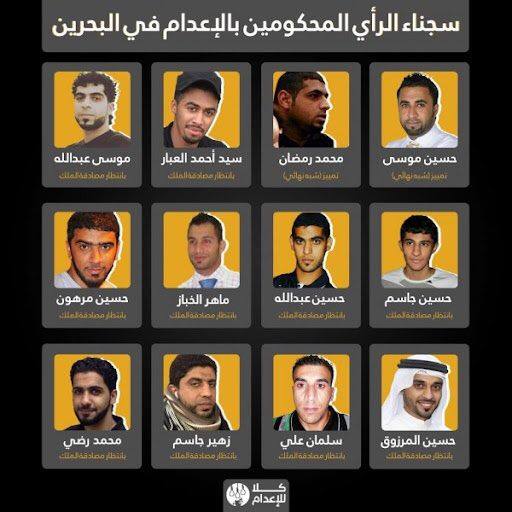|

Human Rights Commentary No. (2) of the Bahrain Forum for Human Rights: Questions About the Continuation of the Impunity Policy The testimonies of prisoners of conscience that are still being received from Bahraini prisons show the continuation of some forms of violations, including those related to violating the right to receive the appropriate and necessary medical treatment. In addition, some prisoners were transferred to Building No. (2), which has become known as the “isolation building,” as a form of punishment. Moreover, some detainees were prevented from going to the canteen, and some of their necessary needs were not being provided. Recently, those arbitrarily sentenced to death announced that they had begun a hunger strike on Thursday, July 4, in protest against the continued restrictions on them and to demand being allowed to perform religious rituals, according to what was stated by the wife of death row prisoner Mohammad Ramadan via a post on the (X) platform.
Although the individual or collective forms of violations against prisoners of conscience vary from one period to another – and some of them develop, such as the deprivation of medical treatment – what is important in observing them is the basic rule from which these grave transgressions immerge. Through the policy of impunity, these transgressions violate the standard minimum rules for the treatment of prisoners.
The following are some prisoners of conscience whose cases were recently published and whose rights to receive the necessary medical treatment have been violated: Muhammad Hassan Abdullah Al-Raml (64 years old), Ali Hussein Al-Fardan (sickle cell patient), and Habib Al-Fardan. Commenting on his transfer to the isolation building, Al-Raml said in a previous telephone statement: “This building is an isolation building, for torture only. They brought me here for revenge. It has been 9 days and they have not brought me my clothes or my basic belongings from Building 8. They treat us according to their mood. Retaliation against us is not normal… I don't know for how long."
The policy of impunity has helped develop the methodology of torture and ill-treatment, and has complicated the conditions of prisoners and those affected, which has affected even the relatives of the victims. Despite the recent release of large numbers of prisoners of conscience, we have not yet witnessed any judicial action to hold the torturers and those who abused prisoners accountable. Coincidentally, these perpetrators still commit the same violations that prisoners have complained about over the past years. 1. Despite the issuance of many local, Arab and international human rights reports about the deterioration of prison conditions in Bahrain in several periods, why have we not yet witnessed a step forward in ending the policy of impunity?
2. After the release of a large number of prisoners of conscience, why has no official been held accountable and no member – of any rank – been prosecuted so far? Is it reasonable that no one will be held accountable for thousands of violations against political detainees?
3. Why haven’t any serious steps been taken to stop violations in prisons as complaints of abuse continue to be received?
4. Why haven’t the UN Special Rapporteur on Torture been allowed to visit Bahrain and listen to complaints of torture from inside and outside prisons?
5. Why is there still so much delay in implementing all the recommendations from the Universal Periodic Review, including what is related to ending the policy of impunity or correcting the conditions of freedom of expression and opinion, peaceful assembly, freedom of association, political rights, citizenship rights, or fair trials?
When we ask all these questions, it does not eliminate the importance of comprehensive political and human rights reform, shifting towards transitional justice to provide justice to victims, making reparations, demanding the release of all prisoners of conscience, and other basic matters that would put an end to the current state of violations. |